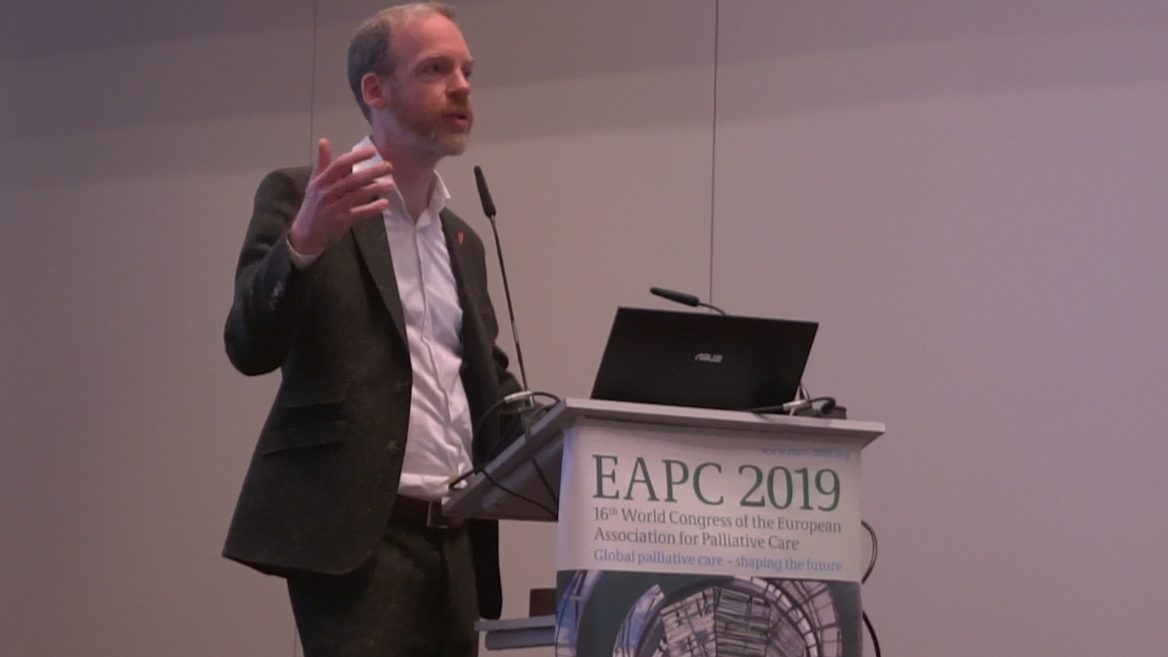Palliative Pandemic and its Digital Divides
Professor Mark Taubert, Cardiff University
Over the course of the pandemic, palliative care professionals have seen more individuals who have been more actively aware of their own demise and even awake during the deterioration from their infection. Very quickly, the palliative care community across Europe got together (via video meetings and social media) to exchange observations and write recommendations – locally we were advised by clinicians in Italy during early April 2020, who made recommendations about getting video-capable media devices in hospitals and hospices. We developed national guidelines in Wales which included managing all palliative patients in all areas, including ICU, the general ward and community.
At times, there have been excellent uses of digital media, wi-fi and video conferencing, and ward clerks, nurses and doctors were swift to adapt to the technology and help patients connect. One person even did a video meeting with his family at home, and they set up the screen so that it faced the dinner table for a meal ‘together’. Other circumstances, when a video-stream was live, but the patient was deteriorating on camera, in full view of their relatives at home, were far more challenging. We have missed ‘real’ visitors desperately in hospices and hospitals, as they are a core part of good care. The visitor chair in the hospital room has been empty, sometimes replaced with a camera phone or tablet computer, which has been helpful in some situations, and less so in others.
Speaker bio
Professor Mark Taubert is a palliative medicine hospital consultant and clinical director at Velindre University NHS Trust. His teaching and research activities at Cardiff University include advance care planning, acute palliative care, technology & new media and DNACPR decision making. He is the founder of TalkCPR.com and has a national lead role to improve public understanding on topics relevant to care in the last years of life and at the extreme ends of medicine. He has delivered a Ted Talk on subtleties in language that are relevant to modern healthcare delivery, and writes for international news outlets like the Washington Post, where his article was a top pick for 2019.
Ticket information
The Digital Legacy Conference is free to attend for EAPC 2021 ticket holders. Alternatively, tickets can be purchased for £20 using the button below.
*The Digital Legacy Conference is a not for profit event run annually by the Digital Legacy Association. It is able to take place each year due to the kind support provided by sponsors, supporters and volunteers. If you or your organisation is interested in sponsoring this year’s conference click here.
Previous Digital Legacy conferences have taken place at UCL Partners (London), Sienna College (New York), EAPC (Berlin) and St Joseph’s Hospice (London). If you would like the Digital Legacy Conference 2022 to take place at your conference, congress, university, office or place of research please do get in touch


